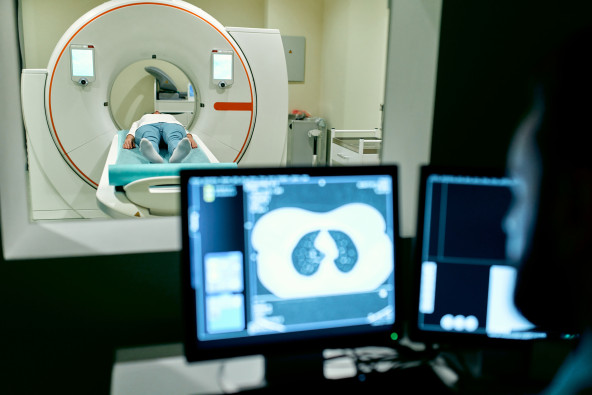Organizational requirements for successful radiation protection in hospitals, medical care centers and medical practices

The key players here are the radiation protection officer, the radiation protection officer and the radiation protection representative.
The person responsible for radiation protection, typically the owner or managing director, must ensure that all regulations are complied with. Section 69 of the Radiation Protection Act regulates who is responsible for radiation protection. The person responsible for radiation protection must take suitable measures and structures within the company to ensure that the requirements of the Radiation Protection Act are complied with and implemented. They are personally fully responsible and liable for this. Violations of the Radiation Protection Act or the Radiation Protection Ordinance can result in fines and even criminal prosecution!
In the past, it has been shown that the implementation of the structural and procedural organization in the context of radiation protection varies from company to company and that there are therefore sometimes considerable deficits that stand in the way of effective and successful implementation of radiation protection (e.g. unclear responsibilities and areas of responsibility, incorrect response to official requests, lack of reporting of incidents, etc.).
Hospitals, medical care centers and medical practices that are active in the field of radiation protection are therefore well advised to review and, if necessary, revise their structural and procedural organization.
Particular attention should be paid to who is responsible for radiation protection and who is the radiation protection officer in the respective company forms, whether a radiation protection officer is also appointed to carry out administrative tasks and whether the respective areas of responsibility of the different players are clearly defined and separated from each other. The radiation protection officer is responsible for carrying out, managing and supervising the activities and measures of operational radiation protection. They must be appointed by the person responsible for radiation protection and must be professionally qualified. The radiation protection officer, on the other hand, is responsible for administrative and organizational tasks, e.g. sending test reports and the necessary communication with the authorities. The radiation protection officer is not mandatory according to the legal requirements and therefore there are no specific requirements for him in the law. Each company is therefore responsible for setting up an internal functional structure with suitable reporting and monitoring mechanisms that meet the legal requirements on the one hand and the specific circumstances of the company on the other.
An important step towards an appropriate internal structure is the proper appointment of the necessary persons with appointment documents, which should be signed and form part of the personnel file, and the delineation of areas of responsibility, which should also be recorded in an organization chart for general transparency.
